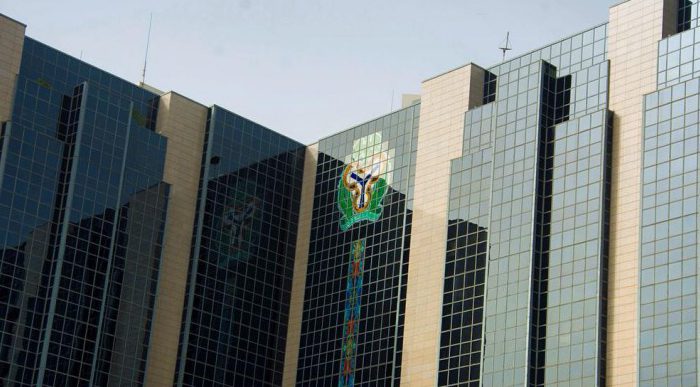A few irate former workers of the Central Bank of Nigeria are still processing the shock of their abrupt termination and are accusing the administration of unfair treatment and mistreatment, and asserting that it was against the bank’s human resource policies and procedures for many of them to not receive their benefits before being fired.
The North Central Coordinator of the Conference of Autochthonous Ethnic Communities Development Association Youth Wing, Paul Dekete, demanded the prompt reinstatement of the fired employees in a statement released on Sunday in Jos, the capital of Plateau State.
The statement read, “The purge wasn’t limited to high-level executives. It extended far beyond directors, impacting Deputy Directors and Assistant Directors who formed the backbone of departmental operations. These were not junior staff; they were seasoned professionals with deep institutional knowledge.
“For example, the Director of Information Technology was overseeing crucial projects on the very day they were terminated, including efforts to secure international information security certifications for the bank.
“In a particularly egregious case, a Director on special assignment, tasked with leading the bank’s efforts to secure an ISO certification for information security, was sacked on the very day the bank successfully achieved this crucial milestone.
“Central banking relies heavily on robust cybersecurity measures, and this certification is a testament to the Director’s competence and the bank’s commitment to financial security. This abrupt dismissal, on the day of a major accomplishment, raises serious questions about the planning and rationale behind the mass layoffs.”
The statement further said, “The mass sack violated the bank’s own HR policy, which mandates board approval for executive terminations.
“This blatant disregard for due process has raised serious questions about transparency. The CBN, a federal institution, must adhere to public service rules. This dismissal exercise, carried out without board approval, lacks a solid legal foundation.
“Making matters worse, the bank offered no clear criteria for the mass sacking. This is a stark departure from their established culture of clear communication with staff during downsizing exercises.”
Dekete, for the sacked CBN workers further said, “Loyal employees, some with over 30 years of dedicated service, were cast aside with a cold, impersonal letter stating “your services are no longer required.” This callous act extended to a Deputy Director who was let go even though she had already completed all the necessary paperwork and her retirement letter was ready to be issued.
“The human cost of this heartless exercise is staggering. Many staff members had used their salaries as collateral for loans tied to their remaining years of service at the CBN. With their abrupt termination, these loans were immediately deducted from their final paychecks, leaving some with nothing and others still indebted to the bank. The impact on these individuals and their families is devastating, with their dreams and financial security shattered in an instant.
“The CBN’s purge extended beyond individual hardship, raising serious concerns about ethnic bias. Reports indicate that some states saw over 80% of their executive staff removed, with North Central and South Eastern regions disproportionately affected. This blatant disregard for the principle of federal character raises troubling questions about the bank’s commitment to national unity.
“Staff morale has plummeted, with a pervasive sense of fear and uncertainty gripping the institution. Every Friday is met with dread, as rumours swirl of another list of targeted employees. The reported use of an external consultant, seemingly unfamiliar with the bank’s HR policies and civil service regulations, only exacerbates the lack of trust and transparency.”
The entire Economic Intelligence Unit (EIU), a division of the bank entrusted with the vital duty of detecting and keeping an eye on illicit financial activity within Nigeria, was among the units that the CBN mass-fired. The EIU was painstakingly assembled in 2018 by hand-selecting the most intelligent individuals from the bank’s departments.
Dekete claims that the departure of these highly qualified individuals is a serious setback to the bank’s institutional knowledge and ability to stop money laundering and other illegal financial activity.He noted that the nature of the sack shows an attempt to cripple the Middle-belt region of the state as Gombe, Plateau and Benue are affected most.
“In Gombe State, five people cutting across Deputy Directors to Assistant Directors cadre were all dismissed courtesy of the re-organization of the bank. In Plateau, 80% of the staff in the executive cadre were sacked, including one who had 3 days to retire and arrangements had been concluded for her normal retirement.
“Benue is not spared either as many Deputy Directors are affected. Very painful is that Mr Onoja Ameh who was transferred from Abuja to Awka Branch last year December was involved in a terrible accident in April this year during which he almost lost his life on his way back to Awka after visiting his family in Abuja is still recuperating when he got sacked. A widow who is currently nursing her trauma was also sacked from the region due to the ‘re-organisation’ of the bank.
“All termination decisions should be reviewed to ensure compliance with CBN HR policy and public service rules. This may involve reinstating some employees who were dismissed without proper justification.
“With most of the casualties arising from the Middle Belt and the South Eastern regions of the country, we call on the Governor of these regions to as a matter of urgency step into the ugly development to unravel the mystery behind the motive to correct it”, the statement said.

